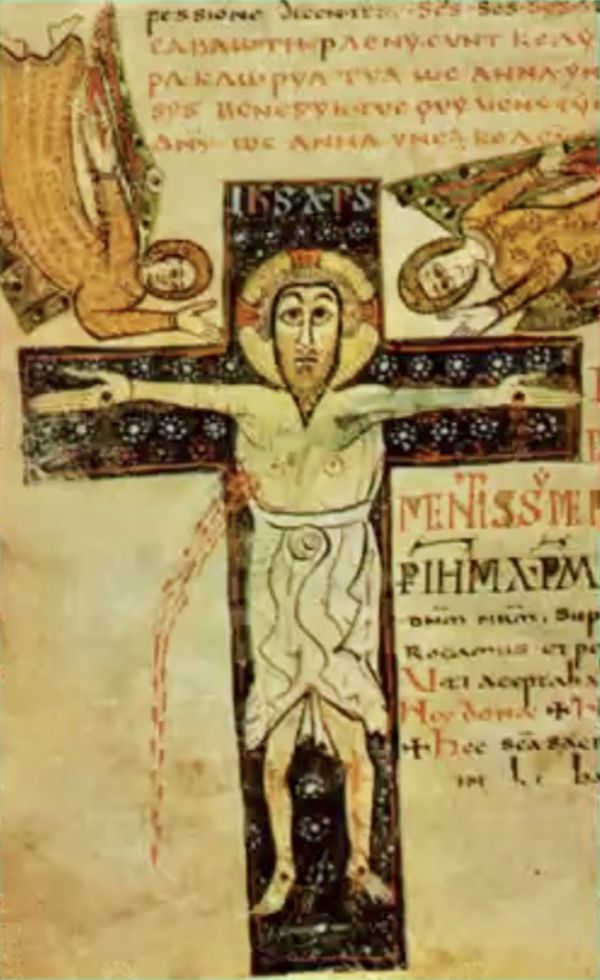Bad reputation is common among Prophets
(Mk 8:34-9,1)
The Cross is normal among Prophets, who certainly do not have a great response from crowds, in building their own limpid ‘city’.
It never remains at the size of easy idols. But this is the paradoxical form of «communion» that mysteriously attracts the human.
Conviviality that draws hearts together, despite the clashes for ambition or the game of opportunisms do not fade around.
Even today, the reversals chaos doesn’t seem to subside, while crises and mingling appear, even in the positive intertweaving of cultural paradigms.
What is to be done?
To «lift» (v.34 Greek text) the horizontal arm of the scafford and load it on one's shoulders meant losing one's reputation.
It’s a capital problem, inseparable from a motivated and responsible attitude.
Indeed, if a disciple aspired to glory, cherished his own honour, didn’t accept solitude... he could not make himself an authentic witness of Christ.
He would be a piece of prolonged worldliness.
Instead, the Master’s fate also involves that of the disciples.
It’s valid all times, and for us: the gift to the end doesn’t come on earth by passing through fame, success, consideration; being constantly accompanied, approved and supported.
Simon was waiting not for a problematic, edgy outcome, but for easy consensus: a release, as between friends patting each other on the back.
He dreamed of an acclaimed discipleship, hence a future of recognitions - and he was disoriented.
Not understanding the project, Peter [«took Him with»] grabs Jesus as if he were his hostage.
And «he began to exorcise Him» (v.32 Greek text) so that the Master himself would finally put his head on straight and get behind him.
Here the historical basis of this "gesture" of the boss of the apostles transpires - namely the long-standing attempt by the first Jerusalem community to compromise with the priestly and political power of the time.
Well, this isn’t «saving life» (v.35): in the biblical sense, achieving human fullness and resemblance to the divine condition.
The subsequent cheap mysticism, influenced by cerebral philosophies, on this expression has bracketed the adventure of Faith and invented a sharp contrast between bodily and spiritual life.
Trivial conviction, which has as it were vivisected unsuspecting people themselves, sometimes driven to masochism.
But here Jesus does not speak of artificial punishments to be borne, nor did he ever impose any mortification. Least of all capable of producing some ‘salvation of the soul’ detached from reality.
«Lifting up positively the Cross»: so that different energies take over, other relationships, unpredictable situations, that make us shift our gaze and activities.
Not with a view to some just remuneration, but for the irreducible core of every believer (or non-believer) and for any matter.
Hence the need not to alienate oneself from the Gospels, for self-completion, for a living testimony, and the solution of problems - crossed ‘from within'.
In short, we can announce Jesus' proposal, criteria, and Presence itself... in facts and in the integrity of life - not who knows when after death (Mk 8:38-9:1).
Different Definitiveness.
[Friday 6th wk. in O.T. February 21, 2025]












